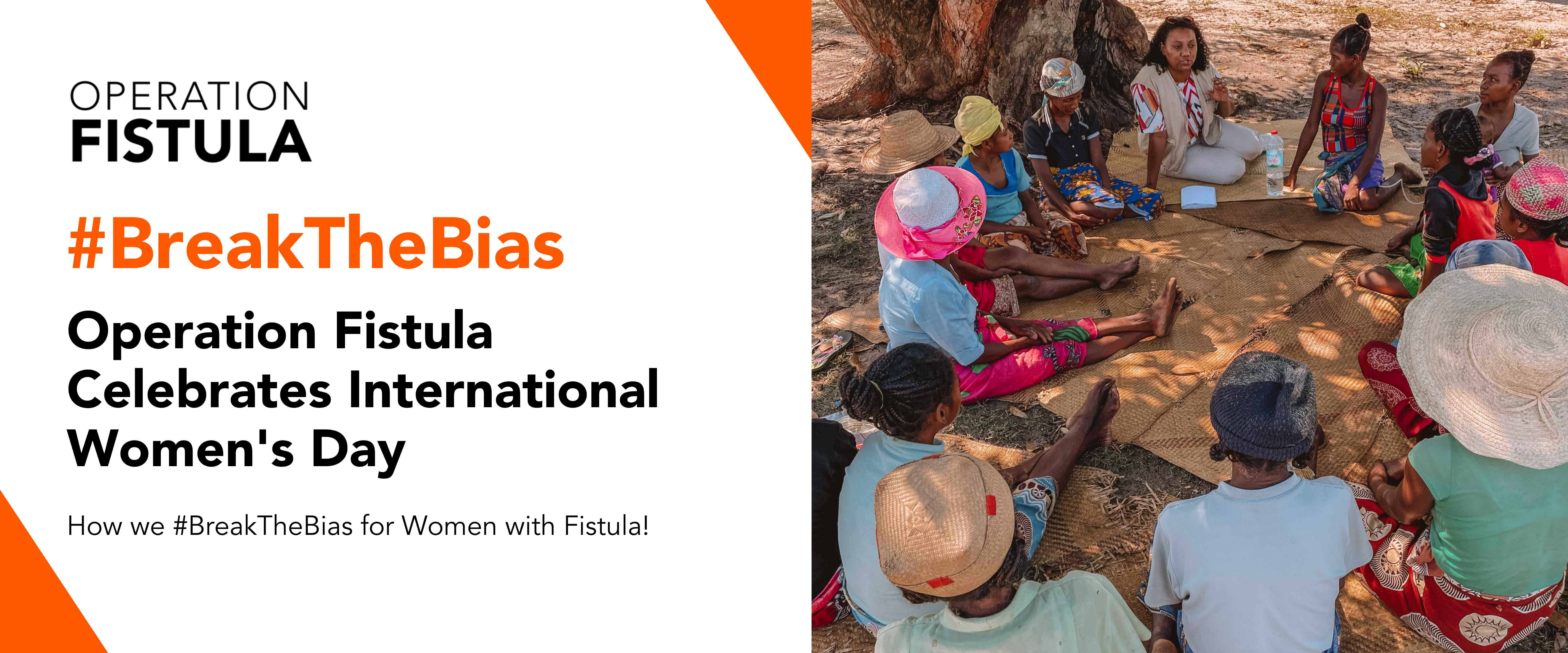By Harena Randrianasolo, Social Media Specialist, Madagascar & Helen Davies, Chief of Staff, UK
Today is International Women’s Day. On this day, we join with the global community of activists and advocates coming together to recognize the need for shared ownership and collective action for gender parity.
On this day, we lift up the voices of the women we serve and celebrate the journey towards justice by calling for equality and an acceleration of progress towards the SDGs. We look to a future where all people are honored, celebrated, and respected – where an equal and equitable world is made manifest.
“The story of women’s struggle for equality belongs to no single feminist nor to any one organization but to the collective efforts of all who care about human rights.” – Gloria Steinem
The fight for justice and equality is far from over. Together, we must persist to drive action beyond the millions of tweets, tags, and likes that are shared today. As a community, we must mobilize from this International Women’s Day – its celebrations and campaigns – to deliver a global movement of daily action and deliverables that will enable the achievement of equality and human rights and #BreakTheBias.
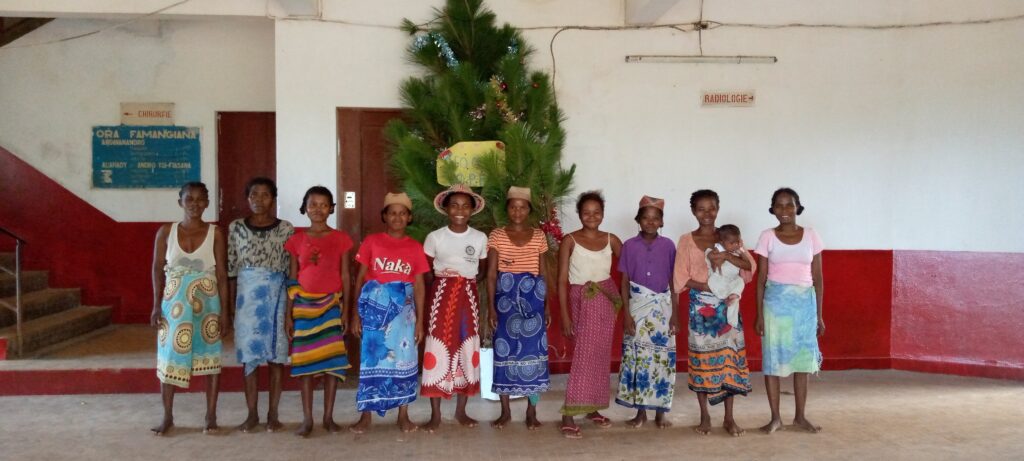
Fistula and Injustice
Fistula only happens in places where systems are failing to meet the needs of women and girls.
Women with fistula live at the extreme nexus of vulnerability, and at the intersection of myriad complex challenges stemming from gender inequality, racial injustice, disability, and poverty. As a result, women with fistula experience profound bias, discrimination, inequality, and injustice.
Obstetric fistula affects women, singularly – usually the poorest women in the poorest countries. Fistula happens to women of all races and castes; women who have little to no access to political power and negligible representation in government.
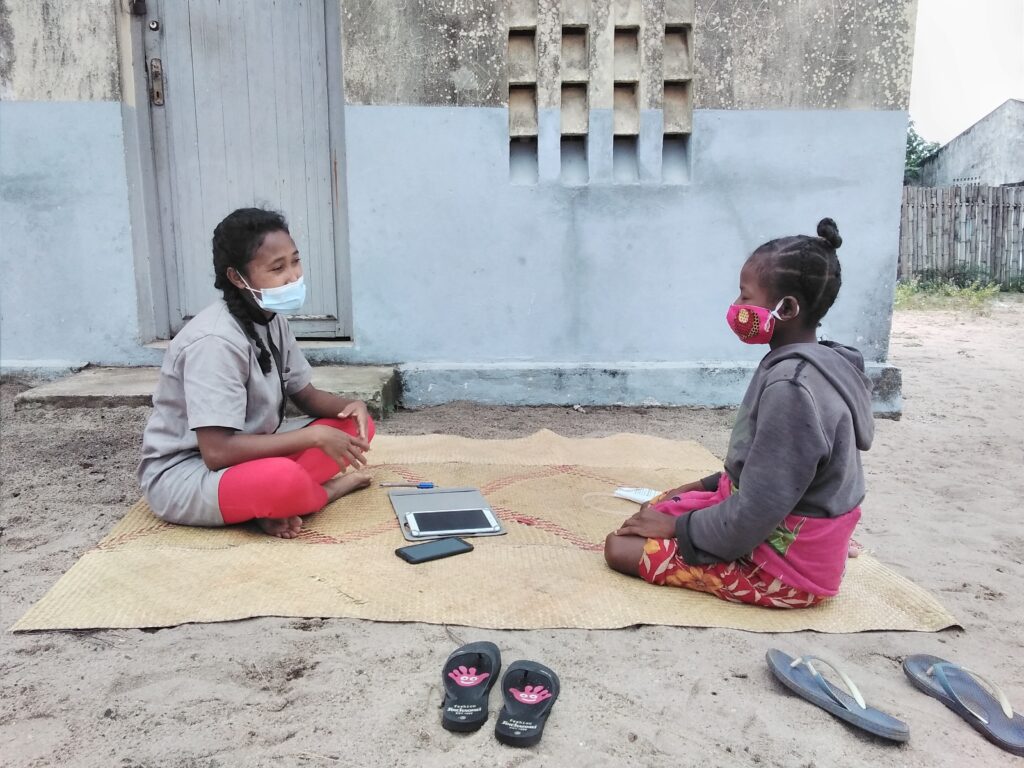
Madagascar: Bias and Barriers
In Madagascar, where we have been implementing our comprehensive service model, the government estimates that there are approximately 50,000 women currently living with fistula.
Gender inequality is an omnipresent part of everyday life in Madagascar. In fact, the level of injustice is so stark that at times it can feel like the barriers to progress are insurmountable. Malagasy women are often totally excluded from economic and political systems and are disproportionately affected by poverty and discrimination.
In much of the country, reproduction is seen as a woman’s primary function, and young girls are often forced into early marriage, becoming pregnant when their bodies are not fully developed or prepared for labor and delivery. This puts them at significant risk of developing a fistula, a risk that is further compounded by the fact that the majority of these women live in very isolated, rural areas – far from health facilities and trained medical professionals.
These women navigate through the nine months of their pregnancy, with no formal medical consultation, often with no information about their health, or the health of their child. If they are experiencing a high-risk pregnancy, or are facing the imminent danger of a traumatic, obstructed labor, they do not know. Only once their labor had started, and they reach the day of their delivery, do they find out, by which time the danger faced by both mother and baby can be extreme.
In Madagascar, where most of the population lives in very isolated rural communities, tradition, and traditional practices are powerful forces in society. When we ask our patients: what steps do you take when facing a critical health issue? In nearly all cases, the answers are the same: I go to the traditional healer in my village. This option is seen as the best solution for any type of healthcare problem. For childbirth, traditional birth attendants, or ‘Matrons’, are seen as the go-to authority. In the villages, these have been the health resources available for multiple generations of mothers, and so the idea of visiting a hospital for a formal consultation, or for their labor and delivery, is not only extremely alien but also perceived as unnecessary.
While this is the dominant view in many rural areas, there are women in these places who want to seek out a professional medical opinion. But, there are significant barriers that limit their capacity to access treatment and medical support. These barriers often have a direct causal relationship to the development of fistula and are also linked to high rates of maternal death. In maternal health, we describe these barriers as the three delays. These are:
- The delay in the decision to seek care;
- The delay in reaching the health facility; and
- The delay in accessing services and care once at the health facility.
In order to attend a short medical consultation, a woman may have to make a perilous and long journey away from her home and her community. If she is already in labor or is experiencing an obstetric emergency, then even if she wanted to leave her community to travel to a health facility, the practicalities and logistics of the journey make it impossible for her. In this case, it is the whole system that is biased against her. Help is inaccessible to her, leaving her at risk of life-long suffering, and even death.
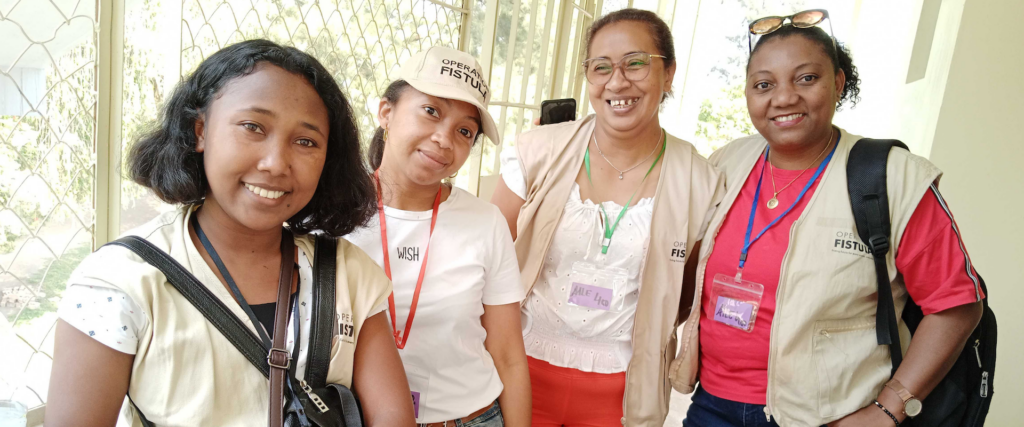
Operation Fistula: On the Front Lines of Fistula Care
Operation Fistula’s global HQ in Madagascar is driving positive progress and change at the community, clinical, and cultural levels. Our team of talented, dedicated, and passionate professionals are persistent in their work to find and care for every woman with fistula in the country.
Throughout our work we seek to empower individuals and communities with knowledge and information about fistula: what it is, how women with the injury can get help, and what communities can do to both help women with fistula, and prevent it from occurring in the future. This includes sharing information about safe motherhood and more broadly, sexual and reproductive health and rights.
We deliver this information through our deep and sustained community outreach and sensitization activities. Through this work, we are also able to reach women with fistula, conduct in-the-field assessments and initial fistula diagnostics, and counsel them about the care available. For women who wish to seek out treatment, we support them on their journey to care – arranging safe and dignified transportation, ensuring they have all the supplies they need for the journey, and referring them to an Operation Fistula Hope Center, where they can be housed and prepared for their treatment.
At our Hope Centers, our team provides psychosocial support and counseling, nutrition and feeding care, and we deliver information about the specifics of each woman’s treatment journey, answering their questions and concerns. We then support patients during their transfer to the hospital, where they receive a clinical assessment and diagnosis, and if suitable, a fistula repair surgery. This surgery is delivered by an Operation Fistula partner surgeon, and the quality of care is tracked via data entered into our quality management system.
After their care, patients return to the Hope Center for their recovery and recuperation. Operation Fistula nurses and social workers ensure that they are comfortable and receive post-operative care and counseling. Throughout their time at the Hope Centers, our teams seek to get to know patients individually and learn more about their lives and their experiences with fistula. This process gives us unique insight into their quality of life, their needs and wants for treatment and care, and their personal hopes and dreams, ambitions, and desires for their life after fistula care.
Our whole team in Madagascar operates with a deep understanding that fistula care goes beyond the delivery of a fistula repair surgery. Throughout our work, we all seek to ensure that each woman is treated holistically, that her personal goals for her care journey are honored and upheld, and that the overall quality of her life is transformed, regardless of the clinical outcome of her treatment.
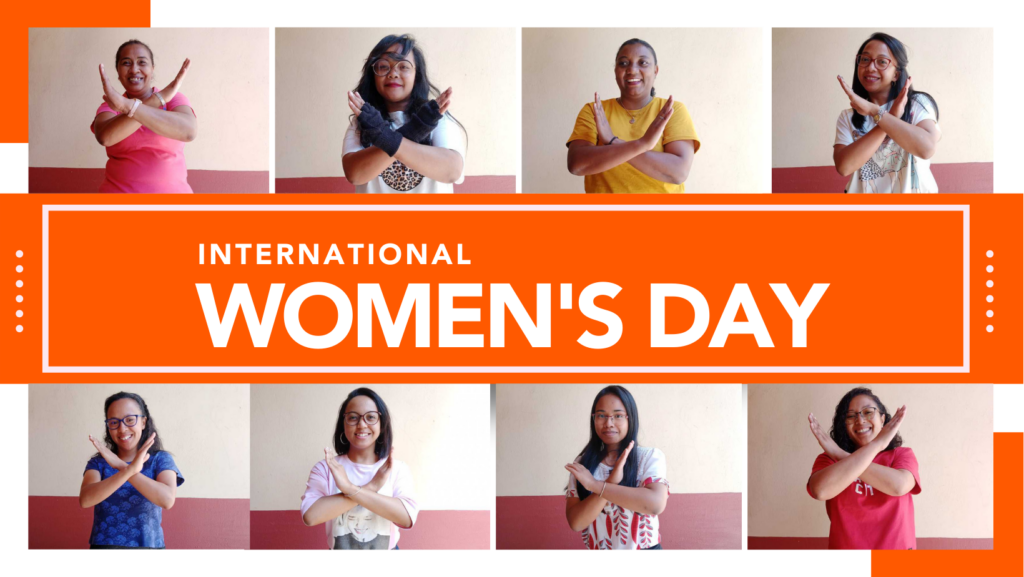
Looking Ahead:
On this International Women’s Day, we join the world in proclaiming our ongoing commitment and dedication to ending fistula and building a better, more equal, world. Today brings us the opportunity to joyfully reflect and celebrate the progress that we have made, while also confronting the long journey ahead – the challenges we must overcome, and the barriers we must break down!
Our team is relentlessly focused on breaking the bias, and building a better future for all Malagasy people. Over the coming weeks, as we look ahead to May 23rd and International Day to End Obstetric Fistula, our team will be sharing more about our work – what we do and how we do it – so that you can get a glimpse behind the scenes…
Join us as we continue to drive progress towards our mission, and work for a fistula-free future! Follow us on Instagram, Twitter, and LinkedIn to stay in touch with all our news and updates.
